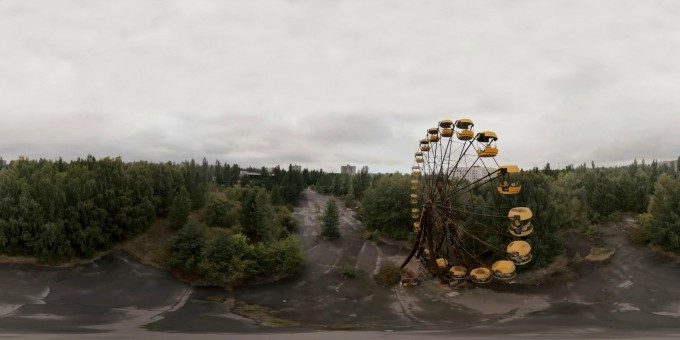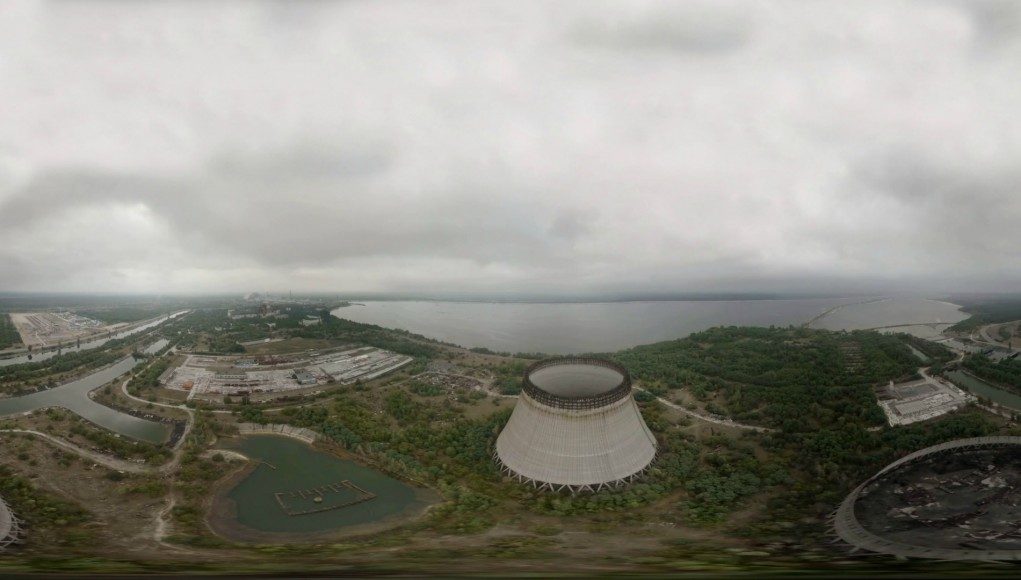Today is the 30th anniversary of the Chernobyl disaster, and in commemoration a group of Ukrainian documentary filmmakers have set out to capture the wreckage that was once the city of Pripyat and its surrounding countryside. The 360 film aims to take you deep into the Chernobyl Exclusion Zone, through spaces only accessible by employees.
On April 26th, 1986 the Chernobyl (also written ‘Chornobyl’) nuclear power plant suffered a catastrophic meltdown, spewing massive amounts of radioactive particles into the air as the result of an explosion at the plant. According to the World Health Organization, the catastrophe at Chernobyl was “the worst-ever civil nuclear accident.”
The team behind Chornobyl360 hasn’t only captured the nuclear power plant and surrounding Exclusion Zone in their initial demo version of the documentary, but also plan to see the construction process of a new sarcophagus, which shelters the atmosphere from hundreds of tons of radioactive elements and highly-contaminated dust. Interviews from witnesses of the tragic event, including workers, engineers and Pripyat locals, are planned to take place through ‘interactive plotlines’ that will allow you to decide your experience with the documentary.
To create a full picture of the site’s past, present and future, the team behind Chornobly360 have recreated locations and people from 1986. The team is also working on photogrammetry 3D scenes, including sensitive areas like the reactor control room.
Support ‘Chornobyl360’ Kickstarter
Project author and producer Kirill Pokutnyy has a special relationship with the facility. Born in the year of the disaster, Pokutnyy’s own father is a first-hand witness who worked over 15 years at the Chernobyl nuclear plant.
“The aim of the project is to attract attention to the consequences of human activity on the planet Earth using an amazing world of Virtual Reality,” said Pokutnyy.

See Also: New Project Sansar Image Shows Beautiful Mars VR World Created in “a Few Hours”
Provided the project hits its €30,000 funding goal, the funds will not only allow the team to move into the next stage of filming, but eventually the labor-intensive process of editing, color correction, sound/motion design, and coding the interactive scenes.
The film will be available for Oculus Rift, Samsung Gear VR, Google Cardboard, desktop, and mobile devices.







